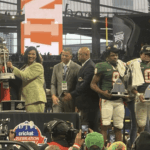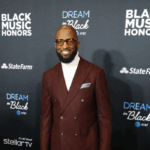
A systemic barrier turns degrees into hurdles for many Black graduates
As the Class of 2025 steps into the workforce, the job landscape has grown increasingly unforgiving—especially for Black college graduates. Pressed by cultural biases and systemic roadblocks, these candidates face disparities that extend far beyond qualifications or ambition.
A Market Gone Cold
Across the board, new graduates are encountering steep challenges. National figures show that unemployment for those ages 22 to 27 has climbed to nearly 6 percent—markedly higher than the national average of roughly 4 percent. Many find themselves underemployed, working roles that don’t require a college degree.
Even graduates with sought-after degrees in engineering or computer science are feeling the squeeze. Reports indicate a sharp contraction of entry-level positions in these sectors, partly driven by automation, artificial intelligence, and economic uncertainty.
When Bias Undercuts Opportunity
For Black college graduates, these structural pressures compound with overt and subtle forms of discrimination. Unemployment rates for Black bachelor’s degree holders hover around 5.9 percent—nearly double the 3.2 percent rate for their white peers.
Bias in hiring remains pervasive. Research following similar methods to the widely cited Pager study has shown that applicants with traditionally Black names receive significantly fewer callbacks than their white-named counterparts, even when credentials match. These disparities persist even when resumes are identical, revealing deeply embedded bias within recruitment systems.
Degrees, Debt, and Disillusionment
The value of a college degree is no longer as certain as it once seemed. For many, it arrives with mounting student debt, lingering underemployment, and an emotionally deflating job search. Traditional pathways to middle-class security are fraying, and Black graduates are pushed further to the margins.
A Growing Shift Toward Skills-Based Hiring
However, employers are beginning to reconsider the emphasis on degrees as filters for hiring. The emergence of “new collar” or skills-first approaches reframes the value of aptitude over academic pedigree. Corporations like IBM, Walmart, and Google are leading the way—prioritizing hands-on competence and workplace readiness over transcripts.
These changes offer a glimmer of hope—suggesting that credential-blind hiring may restore some fairness into recruitment. Yet the real test lies in scaling these practices, especially in sectors historically slow to reform.
Beyond AI—A Future of Shared Resilience
Some see technology as the equalizer once championed by DEI frameworks, pointing to glitches and automation leveling the playing field across education levels. Still, unless carefully implemented, AI can embed existing inequities even more deeply.
Ultimately, the rising urgency is clear: to sustain progress, labor systems must evolve. Entry pathways must widen, hiring protocols must become more transparent, and degrees should not remain default endorsements of merit.
Sort By
 Register for exclusive access to VIP events and more
Register for exclusive access to VIP events and more
Sign up for periodic updates, special discounts, and more!





















